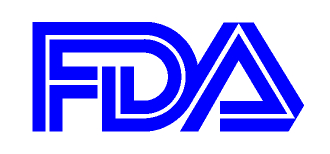
From the U.S. Food and Drug Administration
Is It Really “FDA Approved”? Maybe you’ve seen these words on a company’s website or in a commercial promoting a product or treatment. Here are some facts about products that are, and aren’t, FDA approved.
Fact #1: Generic medicines work the same as brand-name medicines.
FDA-approved generic medicines provide the same clinical benefit and risks as their brand-name counterparts. A generic medicine is required to be the same as a brand-name medicine in dosage, safety, effectiveness, strength, stability, quality, and administration.
Fact #2: Vitamins, minerals, herbs, and other dietary supplements are NOT FDA-approved to treat or prevent disease.
If a supplement promises a cure or quick fix for a health problem, it may be too good to be true.
Fact #3: The FDA doesn’t approve compounded drugs.
Compounding is often regarded as a process in which a pharmacist or a physician combines, mixes, or alters ingredients to create medications that meet the needs of individual patients. FDA has observed that some compounders have made false and misleading statements.
Fact #4: The FDA hasn’t approved an e-cigarette as an aid to quit smoking.
While certain e-cigarettes may help adults who smoke to transition completely away from, or significantly reduce their use of more harmful cigarettes, no e-cigarette product has been approved by the FDA as a method to help quit smoking.
Fact #5: The FDA doesn’t approve facilities.
Like medical product companies, or health care providers, including physician offices, or laboratories.
Fact #6: There’s no such thing as waterproof sunscreen.
Even those labeled “water resistant,” eventually wash off. Water resistance claims, for 40 or 80 minutes, tell you how much time you can expect to get protection while moving in and out of the water. And remember, sunscreen should not be put on infants under six months old, just keep them out of the sun.
Fact #7: The FDA does not approve cosmetics.
The ingredients (except certain colors) and labeling of cosmetics, such as many perfumes, makeup, moisturizers, shampoos, hair dyes, face and body cleansers, and shaving preparations do not require FDA approval. However, under the law, cosmetics must not be “adulterated” or “misbranded.”
Fact #8: FDA-approved vaccines have undergone a rigorous evaluation by the FDA to ensure their safety and effectiveness.
Making sure all vaccines meet standards for safety and effectiveness is one of FDA’s highest priorities. The FDA’s assessment of vaccines encompasses their entire “lifecycle” of development and use. This includes studies conducted before testing in people occurs, studies conducted during development and continuous assessment after a vaccine is approved and made available in the U.S.
Bonus fact: There is no link between vaccines and autism.
The scientific evidence does not support a link between vaccines and autism. The initial concerns that vaccines may cause autism were related to the measles, mumps, and rubella vaccine and thimerosal-containing vaccines. Dozens of reputable, peer- reviewed, scientific studies from the U.S. and other countries around the world have supported the safety of thimerosal-containing vaccines
Fact #9: Using CBD raises safety concerns, and some CBD products are being sold with unproven claims saying they can treat or prevent diseases or conditions.
Studies have shown the potential for CBD to harm the liver, male reproductive system, and interact with medications.
The FDA has approved only one CBD product, a prescription drug product to treat children’s seizures associated with certain syndromes and disease.
CBD products with unproven claims may delay consumers from getting important medical care, such as proper diagnosis, treatment, and supportive care. Talk to a health care professional before using any CBD products.
Fact #10: The FDA is responsible for protecting the public health.
The FDA is responsible for protecting the public health by ensuring the safety, efficacy, and security of human and veterinary food and drugs, biological and tobacco products, medical devices, cosmetics, and products that emit radiation. Advancing the public health means helping to speed medical innovations and informing the public with accurate, science-based information.
The FDA is here to provide the facts and you can help by sharing this information with your community and loved ones. Visit FDA.gov/RumorControlfor more information.


